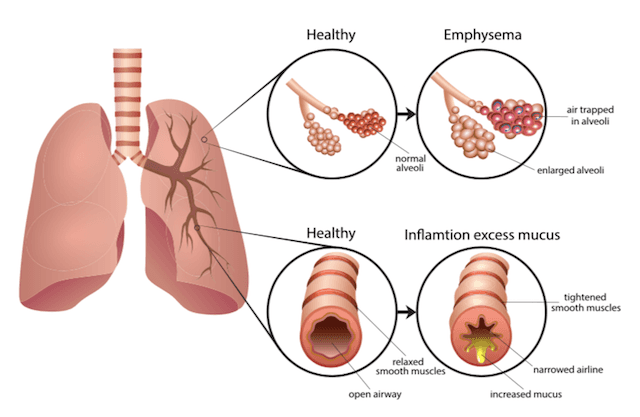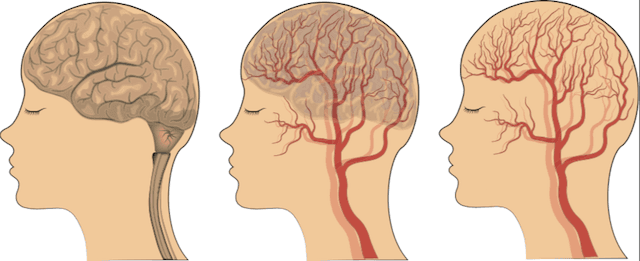One of the most common experiences, yet one of the least properly explained, is yawning. Feeling tired or bored? Saw someone across the room stretch out while they sigh in exhaustion? Everyone has been there, but the interesting question is why?

What is a Yawn?
Yawns aren’t something given much attention since they are a commonplace occurrence no matter where they go. But they have been investigated enough to establish some vague ideas as to why they happen, what they signify, and why they have a tendency to jump from one person to another.
A yawn is an unconscious, natural response which is triggered by tiredness or sleepiness. Once you yawn, you take a heavy breath in filling your lungs with air, and yes, this does lead to you opening your mouth wide.

Yawns tend to follow behind fatigue, boredom, being warm which can create waves of sleepiness, and they do tend to be easy to catch if you notice anyone else yawning nearby.
Why Do You Yawn?
The exact reason as to why people yawn has been quite the debate for a while. As yet, a concrete reason hasn’t yet been found, though a plausible and proven explanation has been observed.
Some former theories as to why you yawn were related to oxygen intake. Our bodies need to rest after a long day, so when your natural clock begins to recognize it’s nighttime, the time to go to sleep and rest, all other parts of your body begin to shut down for the night. Hence, the feeling of being tired.

Another rarely explored theory behind yawns is the possibility that they are related to the natural well-being of your lungs. Yawns could be a protective measure which releases surfactant (a substance similar to bodily oils) which keeps your lungs lubricated. This process prevents the interior of your lungs from caving in on itself.
There is a third theory which contradicts yawning being a complementary reaction of tiredness, but rather a contradictory one which aims at keeping you awake. When you yawn, your lungs and lung tissue tend to stretch, and your corresponding joints and muscles flex. This increases your heart rate, blood flow, and helps you feel awake.
The final and most tested theory is that yawning helps cool your brain down. The following study mentioned is one conducted in 2007, published in the Journal of Evolutionary Psychology.

In the first study, those who would breathe through their nose wouldn’t yawn often or at all. This is because the air that travels through your nasal cavity is cool and remains cool until it reaches your brain. On the contrary, those who breathed through their mouth would yawn much more, and make others yawn as well. Breathing through your mouth inhales much warmer air which doesn’t help cool your brain down. Instead, increasing the blood flow will transfer the heat away and cool you down.
The other scenario was whether or not temperature would change how often someone yawns. In a colder environment, there was little to no yawning since your brain would already be at an adequate temperature level. When the subjects were in a warmer environment, they ended up yawning more, which helps prove that their brains required a cooldown and hence commanded a yawn.
Why Can’t We Control Our Yawns?
Yawning is a subconscious reaction, whether you’re simply tired, too hot, or low on oxygen. This isn’t something you consciously think about. The reflex of yawning is involuntary, therefore uncontrollable, though there are ways you can prevent it from happening.
Why are Yawns Contagious?

Tips to Prevent an Oncoming Yawn
Sometimes a yawn comes in the worst of situations, such as a social gathering or a meeting, where attentiveness and alertness are expected. These few tips below are simply measures you can take to keep your yawns at bay.
- Take deep breaths in through the nose and out through your mouth. This brings in the coolest air possible and lets out all the warm carbon dioxide to sufficiently cool you down.
- Always keep cool water with you so you can wake yourself up with a refreshing beverage.
- If drinks aren’t enough, then you can keep cold snacks on you as well. Frozen fruits and ice creams always help wake you up.
- Try to keep your work environment as cool as possible to ensure you’re not sleepy while you’re working.
- It’s even worth keeping an ice pack on your neck to seriously wake yourself up in case of a social gathering or meeting.
What is Excessive Yawning?
Yawning is a natural reaction, as has been established previously. But there are times when too much yawning can become a concern. Excessive yawning is a condition which should be checked and assessed by a professional sleep expert or doctor.
There are different causes of excessive yawning, some rarer than others but still possible. The more possible causes of excessive yawning are as follows:
- A sense of drowsiness, tiredness, or fatigue throughout anytime during the day.
- Sleep disorders such as insomnia, sleep apnea, and narcolepsy.
- Excessive yawning could be a side effect of current medications you’re taking. They can come as a side effect from depression and anxiety medicines as well.
- In worser cases, it can be a sign of bleeding near the heart.
The less possible reasons behind excessive yawning are more extreme than the typical causes:
- Excessive yawning could be a sign of a potential or developed brain tumor.
- There are also chances of it being a sign or complementary factor of a heart attack.
- It could result due to epilepsy.
- Yawning could be a red flag for liver failure.
- Since yawning is a means of keeping you cool, excessive yawning could display the inability to naturally control your body temperature.
Excessive yawning can and always should be treated as soon as identified, with professional consultation and prescription.
If the excessive yawning is a result of medications which you are taking, then your doctor may suggest either a lower dosage or an alternative. Under no circumstances are you supposed to stop taking medications without first consulting a doctor.

- Your doctor may prescribe sleep aid medications to help you get sufficient rest and feel less tired throughout the day
- You may have to use a breathing device to ensure you’re getting the proper amount of airflow in your system
- Your doctor may suggest working out as a solution to de-stressing yourself and relaxing for better sleep
- You may have to sit down and reassess your sleep schedule, finding ways to fix it and make it more efficient
The extensive issues which relate to heart attacks, brain tumors, epilepsy, and liver failure should always be attended to immediately.
You might be interested in: What Does It Mean When You Yawn?
Conclusion
Yawns are a universal experience. No matter what the real reason behind them, they always show up when they’re least wanted or when you wind down for the day. We all feel that sudden wave of tiredness that inevitably leads to you yawning. They’re here to stay, and they spread like wildfire, so apologies for all the yawns you encountered while reading.
Photo credit: TORWAISTUDIO/Shutterstock; G-Stock Studio/Shutterstock; Artemida-psy/Shutterstock; tugol/Shutterstock; Sezer33/Shutterstock; George Rudy/Shutterstock; Stanislav Photographer/Shutterstock; fizkes/Shutterstock; CGN089/Shutterstock; B-D-S Piotr Marcinski/Shutterstock


